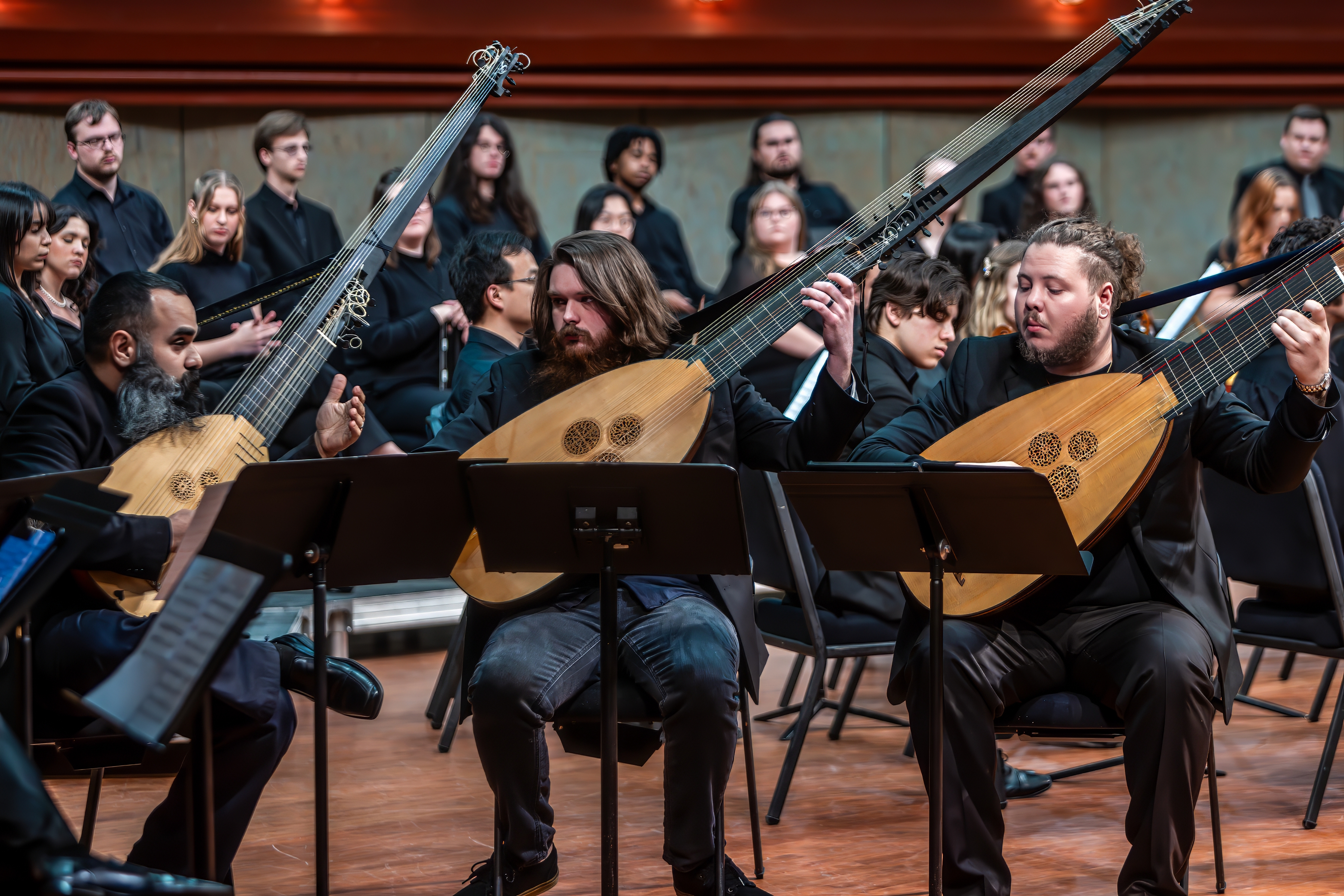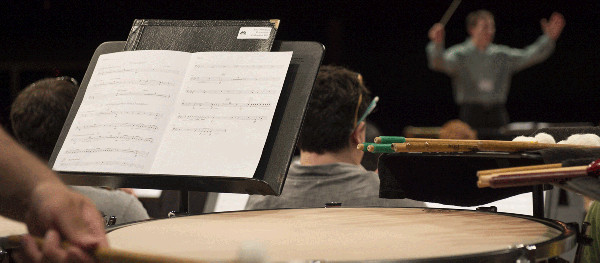(11.1) Recording Services
College of Music Recording Services makes and maintains the master archive of university ensembles, faculty and degree recitals recordings along with live streaming and the YouTube channel.
Recording Services is overseen by two full-time staff employees and has offices in both the Main Music Building and the Murchison Performing Arts Center. Recording. There are about 6 student staff from a wide range of majors who record, edit and duplicate recitals and concerts for the College of Music
Offices: Rooms 149 & 147, Main Music Building; Murchison Performing Center Annex
Telephone: (940) 565-3780
Email: recordingservices@unt.edu Website: http://recording.music.unt.edu
(11.2) College of Music Computer Lab and Recording Studio
The College of Music Computer Lab offers students access to high-end music applications, productivity software and printers in support of academic endeavors at UNT. In addition to supporting the core academic needs of UNT students, the Music Lab offers additional equipment, software, and services to support the specialized needs of courses offered within the College of Music.
These resources include: Recording and Post Production Studios, Notation Workshops, Software Tutoring, Recording Engineering Training, Piano Teaching Lab, an instructional technology room, specialized audio and teaching software, MIDI Keyboards and high quality headphones as well as laptops equipped with music and graphics software to be used for classes within the College of Music.
(11.3) Piano Technical Services
The College of Music Piano Technical Services provides piano acquisition, maintenance, repair, and disposal services for instruments located in all College of Music facilities. Located in the Music Annex, two full-time piano technicians are available to provide these services.
To request services, College of Music students, faculty, and staff may complete a Piano Service Request form and return the form via email to pianoservices.music@unt.edu .
(11.4) Tuning Policy
The Council of Division Chairs voted unanimously to make A=440 Hz the official modem practice pitch for the College of Music.
(11.5) Wind and Stringed Instrument Repair Shops
The Wind and Stringed Instrument Repair Shops are located in the College of Music Annex Building (MA106 and MA 105). Together, the shops offer a full line of repairs on string, brass, and woodwind instruments. Services are offered to students, faculty, and to the general public. Most repairs performed for UNT students and faculty members are free of charge, with the exception of a few types of repair; a small charge is added for services that include chemical cleans, complete re-pads, and parts. Regular market repair prices are charged for non-UNT clients. All university owned instruments are repaired without cost. The repair shops are open Monday through Friday.
Stringed Instrument Repair
The Stringed Instrument Repair Shop offers a full range of repairs of bowed and fretted acoustic and electric instruments to the UNT community and to the public. The shop’s first priority is to keep in the best possible playing condition at the least possible expense, the instruments of College of Music students, faculty, and staff, as well as the University- owned instruments.
With the exception of bow re-hairs, members of the UNT College of Music community are not charged labor and are charged only cost for parts.
Bow re-hairs for everyone are currently priced as follows:
|
Violin/Viola: |
$40 |
|
Cello: |
$50 |
|
Bass |
$60 |
Labor rates for those outside the UNT community are loosely based on a shop rate of $100/hr., which is usually the lowest rate in the local area.
It is difficult to stock a large number of strings, as the repair shop is not a retail facility, but the shop endeavors to stock strings that are popular amongst string players. The shop attempts to purchase stings at the lowest retail price available and sells the strings at cost.
As far as orchestral strings are concerned, these prices are generally considerably cheaper than other shops in the immediate area. Strings and other accessories such as shoulder rests, chin rests, rosin, etc. can be special ordered by contacting the College of Music Luthier at 940-369-7968.
Large, restorative type projects will be considered on a case-by-case basis, with the above labor rates in mind. Sometimes UNT College of Music members will be charged 10% of the regular labor costs on jobs which would exceed $1000.
(11.6) Concert Programs
All concerts scheduled through the College of Music Scheduling Office require a program. The Program Office is responsible for generating these for you.
All program information must be sent 3 weeks before a scheduled event/concert. That includes all degree recitals (junior [voice, string, keyboard], senior, master’s, doctoral, graduate artist certificate), student (non-degree) recitals, faculty recitals, guest artist recitals, and ensemble recitals. Whenever we bring a guest artist to campus, the program needs to have a biography of that person and his/her accompanist. Information for all programs will be loaded in 3 weeks prior to an event, but changes may be made up to one week prior to the event when the program is printed at Printing Services on campus.
A form may be picked up from M241 or the electronic form may be accessed from the College of Music website (choose current student tab, scroll down to the word “forms” and click on Program Information Sheet). If the form is being used for a student recital, the lessons professor must sign it before it is turned in to the Program Office. Information for ensemble programs may be emailed to Linda.Strube@unt.edu.
Programs are typed, proofed (by the performer, lessons teacher or ensemble director), and then printed. Completed programs are picked up in the Program Office, M241. If a professor has requested concert management, however, the programs will be delivered to the Copy Room (M291). A minimal fee is charged for printing student programs; exact change or a check made payable to UNT is accepted for payment.
(Approved, Council of Division Chairs, September 25, 2014






